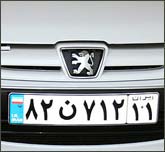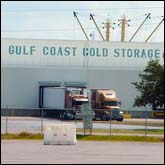 Last Thursday, May 17, Ileana Ross-Lehtinen, who never saw a sanction she didn’t like, had her committee, the House Foreign Relations Committee, hold a hearing on sanctions in Iran. The Committee heard testimony from, among other witnesses, former Bush administration official, Mark Wallace, who now runs a lobbying group called United Against Nuclear Iran which, although it would prefer simply bombing Iran, will settle for sanctions as the next best thing.
Last Thursday, May 17, Ileana Ross-Lehtinen, who never saw a sanction she didn’t like, had her committee, the House Foreign Relations Committee, hold a hearing on sanctions in Iran. The Committee heard testimony from, among other witnesses, former Bush administration official, Mark Wallace, who now runs a lobbying group called United Against Nuclear Iran which, although it would prefer simply bombing Iran, will settle for sanctions as the next best thing.
UANI’s latest campaign is to pressure automobile companies to stop doing business in Iran. (If nuclear scientists can’t drive to work, that will apparently cripple Iran’s nuclear ambitions.) Wallace’s testimony before the Committee, however, contained this interesting nugget:
Despite its extensive business in Iran, Peugeot has partnered with American automaker General Motors, a company partly owned by the U.S. Treasury.
In fact, in March, General Motors bought 7 percent of Peugeot. The Treasury Department, which administers U.S. sanctions against Iran, owns about 25 percent of GM. And now it indirectly owns a piece of Peugeot which ships complete knock-down (CKD) kits to Khodro in Iran. Khodro then assembles and sells the Peugeots in Iran. Apparently, the export of CKD kits by Peugeot to Khodro in Iran has been stopped for the moment. Peugeot cites the risky financial situation in Iran and not the GM investment as the reason it temporarily stopped shipping CKD kits to Iran.
As part of its campaign against automakers, UANI is pushing an acronym-errific piece of legislation it calls the DRIVE act. That stands for the Debarment and Restrictions for Iranian-related Vehicle Enterprises Act and would require automakers to certify that they are not doing any business in Iran to be eligible for government contracts or financial assistance. (I suppose calling it the Car Restrictions Against Persians Act was out of the question.)
Before you accuse me of being soft on Iran, I do support smart sanctions which target goods that are useful for nuclear proliferation and groups in Iran involved in nuclear proliferation. However, keeping Peugeots out of Iran won’t accomplish much other than, perhaps, to bankrupt Iranian car repair garages that all do gangbuster business fixing broken-down Peugeots.

 Posted by
Posted by  Category:
Category: 

 Yesterday, in remarks made by Secretary of State Clinton With Foreign Minister of Burma U Wunna Maung Lwin after the two met, Secretary Clinton
Yesterday, in remarks made by Secretary of State Clinton With Foreign Minister of Burma U Wunna Maung Lwin after the two met, Secretary Clinton 
 A recently filed
A recently filed  Usually criminal export defendants are in the dock for exports of night vision, stun guns, or high-tech chemical processing equipment. Today we have criminal defendants who were
Usually criminal export defendants are in the dock for exports of night vision, stun guns, or high-tech chemical processing equipment. Today we have criminal defendants who were 

